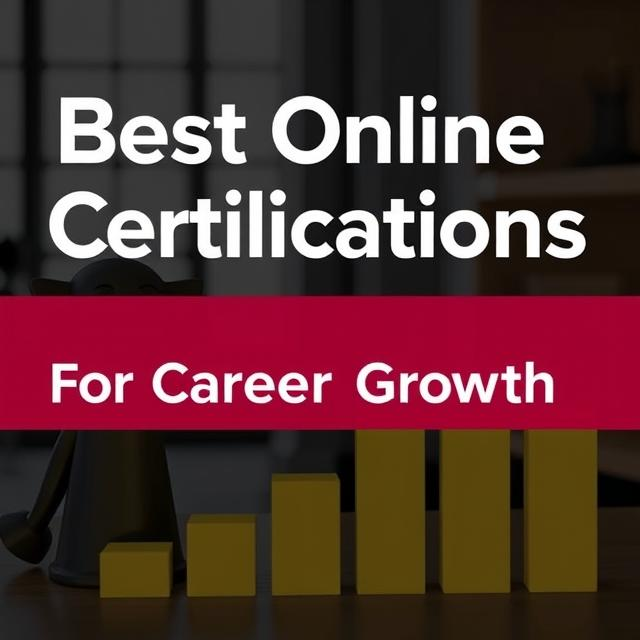Choosing the best online courses for your career can be a crucial step in advancing your skills, knowledge, and job prospects. With the abundance of online courses available today, it can be overwhelming to know where to start. Here’s a guide to help you select the right online courses for your career:
1. Assess Your Career Goals
Before selecting any course, it’s important to clearly define your career goals. Consider where you are in your career and where you want to be in the next few years. Think about the following:
- Current skill gaps: Are there specific skills you’re lacking that are important for your job or desired role?
- Industry trends: Is there a growing demand for certain skills in your industry? What skills are emerging as important?
- Career progression: Are you looking for a promotion, a career shift, or a new job? Identify what skills or certifications will make that possible.
2. Identify the Skills You Need
Once you’ve identified your career goals, determine the specific skills or knowledge you need to achieve them. Some key areas to focus on might include:
- Technical skills: For example, coding languages, data analysis, graphic design, or digital marketing.
- Soft skills: Communication, leadership, teamwork, and problem-solving.
- Industry-specific knowledge: Understanding the latest trends, tools, or regulations in your industry, such as healthcare, finance, or engineering.
Tip: Review job descriptions or ask mentors and colleagues what skills are in demand in your field.
3. Research Reputable Course Providers
Not all online courses are created equal, so it’s essential to choose courses from credible and reputable providers. Some of the top platforms for online courses include:
- Coursera: Offers courses and certifications from universities like Stanford, Yale, and other top institutions. It’s great for academic and professional development.
- Udemy: Offers a wide variety of courses, often at a lower price, with an emphasis on practical skills.
- LinkedIn Learning: Provides courses that are closely aligned with industry demands and includes certifications that are visible on your LinkedIn profile.
- edX: Known for offering free and paid courses from universities and institutions around the world.
- Pluralsight: Excellent for technical skills such as software development, IT, cybersecurity, and data science.
Check reviews and ratings, and see if past students have had success in applying the skills they learned to real-world scenarios.
4. Look for Courses That Offer Hands-On Experience
It’s important that the course provides opportunities to apply what you learn in practical, real-world situations. Look for courses that offer:
- Projects and assignments: These allow you to apply the knowledge gained to realistic problems, which helps reinforce your learning.
- Internships or practical training: Some online programs offer virtual internships or allow you to work on case studies that reflect industry challenges.
- Simulations or practice exercises: This is particularly important for technical fields like programming, design, and data analysis.
Hands-on learning helps deepen your understanding and makes you more confident when applying new skills in your career.
5. Check the Course Content and Curriculum
Make sure that the course content aligns with your learning needs and covers the specific skills or topics you’re looking to develop. Review the syllabus to check the following:
- Depth and breadth: Does the course cover basic concepts as well as more advanced topics? Does it offer a comprehensive learning experience for your chosen subject?
- Course duration: Is the length of the course suitable for your schedule? Does it allow you to learn at your own pace?
- Instructor expertise: Check the instructor’s credentials and professional background to ensure they are qualified and experienced in the subject matter.
6. Evaluate the Flexibility and Delivery Mode
Different online courses offer varying levels of flexibility and delivery methods. You should choose a course that fits your learning style and schedule. Consider the following:
- Self-paced learning: These courses allow you to go through materials at your own speed, which is great if you have a busy schedule.
- Instructor-led courses: These may offer more structure and direct support from an expert, which could be beneficial if you prefer guidance.
- Live sessions or recorded videos: Check whether the course offers live discussions or if it’s entirely pre-recorded. Live sessions offer the opportunity to interact with instructors and peers.
- Accessibility: Ensure the platform supports devices and formats that suit you, such as mobile compatibility, downloadable resources, or transcript availability.
7. Consider Certification or Credentialing
Look for courses that offer certificates or credentials upon completion, especially if they’re from well-known or respected institutions. A certificate can be a valuable addition to your resume or LinkedIn profile, demonstrating that you’ve acquired new skills or knowledge.
- Industry recognition: Some certifications, such as those from Google, Microsoft, or Amazon, are highly valued in certain fields, like digital marketing, cloud computing, and data science.
- Accredited programs: For career advancement, consider online degree programs or professional certifications that are recognized by employers or industry standards.
8. Review Costs and Financial Aid Options
The cost of online courses can vary significantly. Some platforms offer free courses, while others may charge a premium for certification or advanced programs. Keep your budget in mind:
- Free courses: Platforms like Khan Academy or Coursera offer free access to course content, although some certifications may come with a fee.
- Paid courses: While paid courses tend to offer more in-depth materials and support, make sure the cost is justified by the quality and value of the course.
- Financial aid or discounts: Some platforms provide financial assistance or offer scholarships, discounts, or payment plans.
9. Look for Reviews and Testimonials
Before enrolling, check reviews and testimonials from past students to see if the course meets expectations. Look for feedback on:
- Quality of instruction: Are the instructors knowledgeable and clear in their teaching?
- Course materials: Are the course materials well-organized, engaging, and up-to-date?
- Success stories: Did previous students find the course helpful in advancing their careers? Look for success stories or case studies that demonstrate the practical benefits of the course.
10. Stay Up-to-Date and Continue Learning
Finally, it’s important to keep in mind that learning is a continuous process. Once you’ve completed one course, look for opportunities to build on what you’ve learned with more advanced or specialized courses. Stay current with industry trends by regularly exploring new courses to keep your skills relevant.






